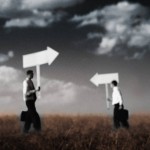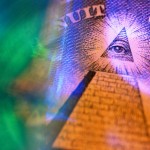Archive for April, 2011
Donald’s Folly
Sometimes I wonder about us. Americans, that is.
What are so many people thinking in seriously considering Donald Trump as a possible Presidential candidate? It’s Donald Trump we’re talking about here and the Presidency of the United States.
Forget the sudden reversal of political stances he’s taken on such things as gay marriage or Universal healthcare. Forget the contributions he’s made to the campaign coffers of politicians that eschew the word ethics, such as Charlie Rangel, Mark Christ and Harry Reid. Forget the reality TV host.
This is a man who drove his business into the ground then left creditors hanging as he declared bankruptcy. This is a man who needs to see his name in 30 feet high gold lettering on everything he touches. This is a man who has made a fortune in business relations with, among others, the purveyors of gambling. This is a man who wants to blame oil producers and OPEC for rising gasoline prices when he’s smart enough to know it’s our own government’s policies and the unrestrained actions of the Federal Reserve that are the cause. But of course, when the Fed digitizes money to the banks, it’s people like Donald Trump who benefit from his business connections with those same banks… so placing blame where it belongs would be, for him, setting the fire way too close to home.
But I digress. This isn’t about Donald Trump. It’s about us.
Did we learn nothing from our naive and shallow vote of 2008? Â Are we willing, yet again, to buy into the superficial claims and bumper-sticker promises of politicians (and aspiring politicians) without doing our due diligence in going deeper and demanding not only more substance but also more integrity?
If the answer is “Yes, we are prepared to be so simplistically deceived again†then God help us. We cannot go down this road even one more time… for we are out of time. Not to mention out of money.
It’s on each one of us now to put down our egos and our greed and be our highest Selves for the sake of the future.
Call me crazy, but I see no evidence of The Donald putting down either his ego or his greed in the near future… let alone for the sake of yours.  So let’s stop wasting time on him and go in search of real candidates with real solutions who come to the table fully grown with their egos in check and their mission the common good.
Technology Unleashed
There are lots of obvious challenges currently confronting the nation. Each demands and deserves significant attention and creative thinking to resolve. Yet, what if I told you there was one solution that would fix all of the problems facing us and it’s within your power to do something about it?
Well, first, a little background.
Over the past 50 years, the technological explosion has outpaced our social and spiritual development. As a result, our application of the technology can be likened to a 12-year-old who is given the keys to the family car. While he or she may know how to put the key into the ignition, press on the accelerator and turn the wheel… what is intended to be a means of transportation turns into a deadly weapon. Without maturity, understanding and formal training, a 12-year-old with access to driving a car is… no pun intended… an accident waiting to happen.
So, too, is humanity in relation to technology. Whether it’s the misuse of nuclear power for aggressive purposes or living lives propelled to the point of insanity by cell phones, blackberries, faxes, ipads, or 24/7 news… we are that 12-year-old with the keys in hand lacking the maturity, understanding and training to moderate how, when and why we use what’s before us. Absent those safeguards, we are not driving the technology, the technology is driving us (again, no pun intended but I can’t seem to help myself!).
Understanding the point at which we’ve arrived, and the inherent dangers, can be very helpful. To go back to the car analogy, the 12-year-old is unlikely to self-regulate. After all, the car is fun and faster than walking. The most likely event that would change his or her mind would be a collision. The more serious the collision, the greater the change of mind and perspective.
Unfortunately, humanity cannot afford the equivalent of a significant auto collision. We have become too interconnected globally, and too reliant personally, to withstand a technologically based accident without severe and long lasting consequences: e.g. Japan’s nuclear meltdown.
What can we do? Well, here’s what you can do. Get off this train.
First, evaluate your own life and decrease the role that technology plays in it. Each self-limitation you impose will restore an equal or greater amount of sanity to your world… and the world at large. Secondly, daily study and teach, by way of example, choices and behavior that are ethically and morally driven. Thirdly, reconnect with or enhance the role that God/spirituality/Source plays in your life.
If you think that changing your personal relationship with technology will make little difference, let me remind you of a scientific fact. When a butterfly flaps its wings in New York wind patterns change in Europe. It’s just a matter of time.
We, like Nature, are all One and everything each of us does affects the whole. For good or for ill. And so your changes matter. They matter most immediately to the quality of your own life. Eventually and inevitably, however, they matter to the quality of everyone else’s.
That’s what you can do and that’s how you can change the world.
One decision at a time.
Transcending Polarization
I try to stay informed. What that means to me is that I try and listen to both sides of the argument… whatever “the argument†may be. Lately, I’ve come to the conclusion that we have become so polarized in our efforts to resolve our financial and societal crises that we’ve all but lost the ability to transcend differences and find common ground.
 Potentially polarizing points of view are not unique to 21st century America. The six Native American tribes that combined to form the Iroquois Confederacy, the thirteen colonies that wrote the Declaration of Independence and the twelve states that sent representatives to Philadelphia in 1787 each had disparate opinions and interests. Yet, in each of the three instances, the common good transcended both the diverse interests at stake as well as the personal egos of the individuals representing those interests.
Potentially polarizing points of view are not unique to 21st century America. The six Native American tribes that combined to form the Iroquois Confederacy, the thirteen colonies that wrote the Declaration of Independence and the twelve states that sent representatives to Philadelphia in 1787 each had disparate opinions and interests. Yet, in each of the three instances, the common good transcended both the diverse interests at stake as well as the personal egos of the individuals representing those interests.
Given the dire circumstances we now find ourselves facing, why can we not see the wisdom of those lessons? I think the answers are ego, greed and fear of the unknown.
Contrast those examples with the current state of our economy, just one of the many challenges we face.  Both sides are blaming the other and both sides are dug in deep. Each has special interests coming to bear. The common good doesn’t appear to be anyone’s priority, although if you listen carefully they each have some valid points and helpful suggestions. The problem is that when you “dig in deep†there’s so much mud on top it’s hard to hear above ground!
Our President should be making a positive, leadership contribution towards resolving the underlying issues and elevating the discourse. Instead, he was most recently at Facebook corporate headquarters yesterday fueling the blame game and doing it directly with one of the groups he is courting politically for 2012, the young. That delivery, instead of inspiring others to seek the common good, was soliciting votes for the second term. And while Mark Zuckerberg, founder of Facebook, added that he “wouldn’t mind paying a little more in increased taxes on the wealthyâ€â€¦ a comment that got him a laugh from his constituents (also known as his “employeesâ€)… he’s not one to look to for guidance. He appropriated the idea for his company and had to pay 65 million dollars for the mea culpa.
The solution is to drop the posturing and realize that more resources (energy, time, and money) are wasted on maintaining incompatible positions than are needed to solve the problem. To acknowledge that we are all in this together and that it really is sink or swim time.  To accept that reprioritizing our values will make us better human beings not poorer ones. Finally, to be grown up enough to acknowledge that no one person… or one side… has all the answers. Both sides have kernels of good ideas to contribute toward meeting our challenges.
I like the saying, “wisdom may come from your grandmother cooking chicken soup at the stove.†The key is being confident enough… and smart enough… to know that and listen for it.
Egypt’s Seven Years of Famine
History can be instructive. So can dreams.
 It was Joseph’s interpretation of Pharaoh’s dream that led to ancient Egypt’s readiness when it encountered seven years of famine following years of plenty. Joseph, a Jew, was appointed Viceroy of Egypt and put in charge of the grain supply. He ordered that grain be stored in anticipation of a shortage and, sure enough, the shortage followed and Egypt weathered the storm.
It was Joseph’s interpretation of Pharaoh’s dream that led to ancient Egypt’s readiness when it encountered seven years of famine following years of plenty. Joseph, a Jew, was appointed Viceroy of Egypt and put in charge of the grain supply. He ordered that grain be stored in anticipation of a shortage and, sure enough, the shortage followed and Egypt weathered the storm.
Instead of condemning the naysayer…Pharaoh promoted him.
Instructive? Maybe.
The price of oil is rising and with it the cost of almost everything else. Inflation is on the rise and the dollar is on the wane.  The U.S. economic outlook has been downgraded from “stable†to “negative.†We don’t have 7 years of grain reserves. In fact, we have about 15-18 day’s worth with grain production for ethanol use being about 5 times the amount we’re using for food.
While I don’t know if President Obama has had any dreams such as Pharaoh did…I do know where I got all the above facts. I got them from Glenn Beck. And while many people, including the President, are busy condemning Mr. Beck for his naysaying they would be wise to take a lesson from Pharaoh.
The saying goes, “Don’t kill the messenger.â€
Mr. Beck may irritate some and infuriate others, but there are a significant percentage of us out here who know that he is, and has been, copious in his fact checking and amazingly prophetic in his outlook.
I use the word “prophetic†not in the biblical sense and yet… one has to wonder why we would be any less deserving of Divine intervention than were those ancient Egyptians.
Social Network II
This is my second post in two days on the movie Social Network. I think an analysis of it deserves at least two days of my time.
Why?
Well for starters, as I said at length in yesterday’s post, we’ve made a “winner†out of a thief. But I’d like to get past Mark Zuckerberg for a moment and move on to the filmmakers.
The screenplay was adapted by Aaron Sorkin from the book “The Accidental Billionaires” by Ben Mezrich. The film was directed by David Fincher.  The Producers were Scott Rudin, Dana Brunetti, Michael De Luca, Cean Chaffin and Kevin Spacey. I take time and space here to list their names because I think they are all culpable in doing harm.
How?
Well, fact checking the movie seems to support the allegation by Mr. Zuckerberg that it’s a work of fiction. At least it’s embellished and conveniently twisted fact to achieve a self-serving end. What end?
Profit.
It appears that both the Producers and Mr. Sorkin felt that a completely amoral, asocial and criminal lead character would sell better at the box-office and on DVD than would an otherwise not so asocial, not so amoral, yet still criminal, Mark Zuckerberg. In reality, it seems Mr. Zuckerberg wasn’t nasty or greedy enough for the film’s makers.  So they went instead in search of the lowest common denominator:  our collective and insatiable desire to be rich and famous… regardless of the real cost.
There’s a parable about a Polish man who is dying and been in a coma for weeks. Despite efforts by every visiting relative and friend, no response can be elicited from him to indicate consciousness.  Then, his Priest comes to visit and sitting close, whispers in the dying man’s ear, “I have zlotys do you want some?â€Â In reply, the dying man unclenches his fist to receive the Polish coins.
It is said that the last desire to leave us is not the desire for sex but the desire for money. It’s why the prospect of perhaps having more of it is always so seductive and effective in motivating us… although not always to our credit.
Which brings me back to Social Network.
In making a very appealing, very seductive movie about a very successful entrepreneur with no ethics or morals to speak of … the real cost is to, yet again, nourish and promote the misguided and destructive principal that “the means justifies the ends.â€
It is not fair to blame only those who made the decisions that led to the film’s message and creation of a darker character than Mark Zuckerberg already was. Equal responsibility lies with us. For as long as we continue to patronize movies that glamorize our darker selves, with total disregard for how doing so contributes to our lower selves and our lowest common denominator, the creators of such films (and books) will prosper as will the incentive for them, and others in every walk of life, to keep up the bad work.
Zuckerberg’s Missing Conscience
I watched Social Network last night and found it disturbing on too many levels to cover all in one post. So I’ll focus on the one I found most disturbing.
We have made a legend and role model for our youth out of a thief.
No matter how Mark Zuckerberg tries to distance himself from his character as portrayed in the movie, one fact remains. In the final analysis, Zuckerberg paid 65 million dollars to two other young men because he stole their idea.
For me, everything else in the movie pales in comparison.
I knew virtually nothing of Zuckerberg’s creation of Facebook and his meteoric rise to fame and fortune prior to sitting down to see the movie other than snippets here and there from the media.  My impression, based upon how he is covered in and by the media, was that he was some young, technological genius who created and designed the powerhouse “Facebook.â€
However, after watching the movie, what I knew was that Zuckerberg built his “platform†on the backs of some other people he had no apparent problem climbing over, kicking in the teeth and crushing in the process. He reminds me of Ivan Boesky, the 1990’s Arbitrageur who, in an address to a Stanford University graduating class, said “Greed is good.â€Â With that hubris, Boesky set the stage for two decades of plunder and materialism in this nation not seen since, probably, the Roman Empire.
Presently, we focused on the technological wonder of Facebook to the almost disregard for the total absence of ethics upon which it was created.  It’s like saying the economy was good during the Clinton years giving little mention to the immoral virus this nation was infected with as a result of Clinton’s wanton lust.
Today, the day after watching Social Network, I went in search of fact checking the accuracy of the movie. It seems Zuckerberg was portrayed more asocial and more insensitive that he actually was. That’s the good news.  The bad, very bad, news is that he did, in fact, steal the idea from two classmates and paid 65 million in restitution.
We should be very careful who we hold up as role models for the young. In a world where Ivan Boesky is king and greed is good… Mark Zuckerberg is royalty. It’s not a world I want to inhabit. Nor is it one in which we, as a nation, can survive in much longer. It’s gotten us where we are at the moment… and the moment is tenuous.
There is nothing wrong with success or money if how you achieve either one of those is respectful of yourself and others.
In such a world, the Ivan Boeskys and Mark Zuckerbergs would be pariahs.
Choose Wisely
What do the following have in common? 1) A doctor dedicated to healing through alternative therapies; 2) a renowned artist sitting in Fairfield, Ohio meditating 6 hours a day for world peace; 3) a right wing Republican concerned primarily with defense of Israel, and 4) a former General Manager of a BMW dealership with little time for politics?
Answer: They’re all friends of mine.
I like to think of myself as a reluctant optimist.  And a realist. My optimism is hard earned. I didn’t use to be this way. In fact, I used to spot every dark cloud on the horizon before it was even formed. But I spent a lot of years, and tears, learning that pessimism is a self-fulfilling prophecy. We get what we focus upon and so, reluctantly, I exchanged fearing the worst for anticipating the best.
As for being a realist…. well…that’s a little more difficult to explain. The reality I see is unique to me. So it is with each of us.  Which is why, two people can witness the same auto accident and recall it differently. It’s all a matter of perspective and what preconceived ideas we bring to each moment.
At the moment, the reality I see is one in which human evolution is at a critical fork in the road. One fork leads to a breakdown… the other to a breakthrough. If we take the fork leading to breakdown, we will encounter increased indebtedness, increased violence and decreased personal freedom ending in slavery to someone or something. If we take the fork leading to a breakthrough, we will learn to honor and conserve our resources, choose peace as way of life, and comprehend, once and for all, the correlation between personal freedom and personal responsibility.
I see both realities as “potential†because I am that realist I mentioned earlier. The reluctant optimist in me knows (with almost certainty) that we will choose wisely.
Now, back to my friends. They are decidedly different in their views of the world. Yet I value and honor each of them because it’s only in the allowing of differences that we stand the greatest chance of choosing the correct fork in this road. I also proceed upon the premise that on any given day, at any given moment, any one of them is capable of teaching me “something I do not know… the knowing of which will change everything.â€Â It’s a great quote. It belongs to Werner Erhard, founder of EST and The Forum, late 20th century transformation models and self-awareness programs.
Like each of us, Erhard was a work in progress. Before he was Werner Erhard, awareness guru, he was John Paul Rosenberg, a used car salesman in Philadelphia. At some point, he reached a fork in the road and chose wisely.
May we do the same.
The Palestinian Underdog
I think it’s natural to root for the underdog. At some time I suppose we all do. So it’s not surprising that there has accumulated an international groundswell in support of Palestinian statehood. After all, Israel has been economically, politically, technologically, and militarily the stronger of the two opponents for…well…forever, it seems.
But action without thought is reckless. Â When we begin to actually think about the underdog, it starts to look strangely more like a rabid coyote than some cuddly domestic hound.
The latest example was the distribution of candy in Gaza in “celebration†of the savage massacre of five members of the Fogel family by Palestinian terrorists. But this is just the latest. Relentless rocket bombardment of Southern Israel, Palestinian children strapped with bombs and sent off by their mother’s to be martyrs, the targeting of innocent Israeli civilians while they ate, commuted or just got on with their lives. Where is recognition for the restraint exhibited by Israel time and time again where no other country would have tolerated such assaults and tragedy without retaliation?
It’s important to remember just who the aggressor is in this drama because there is a plan and a timetable underway by members of the United Nations to recognize a state of Palestine that will include Gaza and east Jerusalem. That’s the plan. The timetable is September 2011. And it seems our President is on board as well.
If you think action without thought is reckless, you “ain’t seen nothin’ yet.â€
The United States is currently engaged in three wars within Muslim countries. There are countless uprisings and revolutions in the Arab world taking place. Much of what we see is violent or portends violence.
It is foolhardy and dangerous to think that at such a time Palestinians, granted statehood under terms that rob Israel of a portion of its capital and return to the Arabs land that was fairly gained by Israel when it was attacked in 1967 by the Arab world, will result in anything other than emboldening the Palestinians to recommit to their charter. That charter, which has never been amended, calls for the destruction of the State of Israel.
It is imperative that we, as human beings, do our best to bring dignity and the necessities of life to every living being on the planet. It is not, however, imperative that we act without thinking and thereby reward barbarity and inhumanity.
Let’s demand that the Palestinians first eschew violence as a negotiating tool before we pass out the candy.


